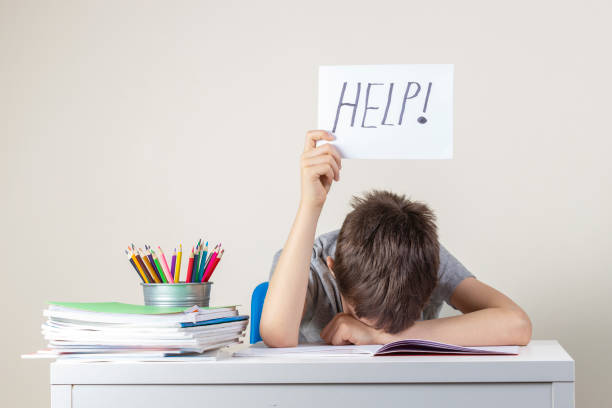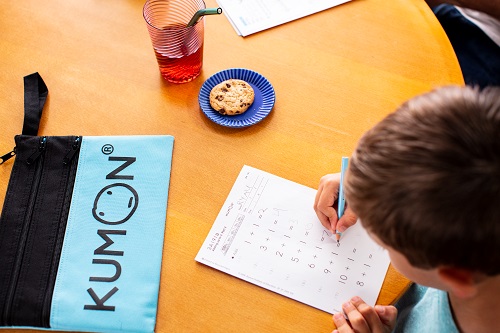It is important to have different Strategies for students to ask for help; asking for help can be challenging. You may feel embarrassed, unsure of yourself, or don’t know how to ask for help effectively. However, seeking assistance when needed is vital for your academic success.
It can help you better understand complex concepts, improve your grades, and achieve academic goals. Today, you and I will be learning some of the best Strategies for students to ask for help. Keep reading if that’s what you’re looking for
>> See This Suggestion: Why Is it important to ask questions when reading [ 7 Best Reasons]
Table of Contents

10 Best Strategies for students to ask for help
Here in this article is the 10 Best Strategies for students to ask for help
Identify the Problem
The first step in asking for help is to identify the problem. Before approaching a teacher, tutor, or mentor, you need to know precisely what you need help with. This could be a particular assignment, a specific concept, or a general issue with your studies. Take some time to reflect on the problem and write down any questions you have. This will help you communicate your concerns more clearly and effectively when you seek help.
Check out: Inferring Reading Strategy [ Everything About It]
Seek Help Early
Don’t wait until the last minute to ask for help. Seek assistance as soon as you realize you need it. Waiting until the problem becomes more significant can lead to additional stress and lower grades. Early intervention can help you avoid a more severe problem and get back on track.
Choose the Right Person to Ask
Identifying the right person to ask for help is very important as the help you seek. You need to choose someone knowledgeable, approachable, and available. This could be a teacher, tutor, mentor, or classmate. Consider what type of help you need and who would be best suited to provide it. For example, if you need help with a specific assignment, your teacher or tutor may be the best person to ask. A peer mentor or classmate may be more helpful if you’re struggling with a general concept.
See also: Best Guide To Predicting Reading Strategy
Be Respectful
When you approach someone for help, it’s also very important to be respectful when seeking help. This means being polite, patient, and open-minded. Remember, the person asking for help takes time out of their busy schedule to assist you. Show your gratitude and appreciation for their help by being courteous and respectful.
Be Specific
When you ask for help, be as specific as possible. Provide details about your problem, the assignment you’re working on, and your questions. This will help the person you’re asking for help to understand your needs better and provide more effective assistance.
Listen Carefully
When receiving help, it’s important to listen carefully to what the other person is saying. Take notes if necessary, and don’t be afraid to ask questions if something is unclear. Paying close attention to the advice you receive will help you better understand the concept or assignment you’re struggling with.
Read also: Best Guide To Questioning Reading Strategy
Take Responsibility
While seeking help is important, and this strategy for students to ask for help will not be complete without it, it’s also important to take responsibility for your academic progress. Remember, you’re the one ultimately responsible for your education. Don’t rely solely on others to help you succeed. Take an active role in your learning, and ensure you’re doing everything possible to understand the material.
Follow Up
Another essential Strategy for students to ask for help is that after receiving the help they are looking for, it’s essential to follow up on the advice you’ve been given. This means reviewing your notes, practicing the concepts you’ve learned, and asking follow-up questions if necessary. Applying what you’ve learned to future assignments and exams is also essential.
Be Patient
Learning takes time and patience, and this should be the most important among all Strategies for students to ask for help listed on this page. Don’t expect to understand a difficult concept or assignment overnight. Be patient with yourself and the learning process. Seek help when needed, but also recognize that it may take time to understand the material thoroughly.
Also check: Best Guide To Visualizing Reading Strategy
Be Persistent
Finally, don’t give up! If you’re still struggling after seeking help, don’t be discouraged. Keep trying, seek additional resources, and ask for additional help. Persistence is critical to academic success. Don’t let temporary setbacks discourage you from achieving your goals.
Now that you’ve gotten your hands on the Strategies for students to ask for help let’s see Why a student should ask for help?
>> See This suggestion: Asking Higher order questions for high school students With Examples
Why Should a Student Ask for Help?
There are several reasons why a student should ask for help when they are struggling with a particular subject or assignment. Here are a few key reasons:
- Gain a better understanding of the material: When a student struggles to understand a concept or complete an assignment, seeking help can provide clarity and a deeper understanding of the material. A teacher, tutor, or mentor can offer different perspectives and explanations to help the student grasp the concept more easily.
- Improve academic performance: Asking for help can also improve academic performance. When students receive assistance, they can gain the knowledge and skills needed to perform better on exams and assignments. Improved academic performance can lead to higher grades, opening up more opportunities for future academic and professional success.
- Build confidence: Struggling with a subject or assignment can be demotivating and lead to a lack of confidence. Seeking help and receiving support can build trust and help students feel more capable in their academic pursuits.
- Develop essential skills: Seeking help can help students develop essential skills such as communication, problem-solving, and critical thinking. By communicating their concerns and asking for assistance, students are learning how to articulate their needs and find solutions to challenges they may encounter in the future.
- Avoid falling behind: When a student struggles with a subject or assignment, it’s easy to fall behind in their coursework. Seeking early help can prevent the problem from escalating and becoming more challenging. This can help students stay on track and avoid falling behind in their studies.
Conclusion On Strategies for Students to Ask for Help
Asking for help as a student can be daunting, but it’s essential for academic success. By following these strategies, you can effectively seek assistance, improve your understanding of complex concepts, and ultimately achieve your academic goals. Remember to be respectful, specific, patient, and persistent. You can overcome academic challenges and succeed in your studies with the right mindset and approach.
FAQ
Why is it essential for students to ask for help?
Asking for help enables us to surround ourselves with people who can enhance our well-being and promote growth. These individuals instill confidence and hope in our ability to handle difficult circumstances, strengthening our resilience.
What are the eight tactics for achieving academic success?
Eight practical tips for achieving academic success
Set SMART objectives.
Prioritize time management and planning.
Learn all you can about the course contents.
Engage your professors and fellow students.
Utilize Penn LPS Online’s resources….
Follow your passions, care for your physical and mental health, and…
Have fun
What is the most successful method for helping students learn?
Dunlosky’s research indicates that practice testing is the most successful tactic. It entails researching and reviewing by responding to inquiries and proactively recalling facts. This helps re-consolidate information, forge connections, and improve memory and comprehension.






